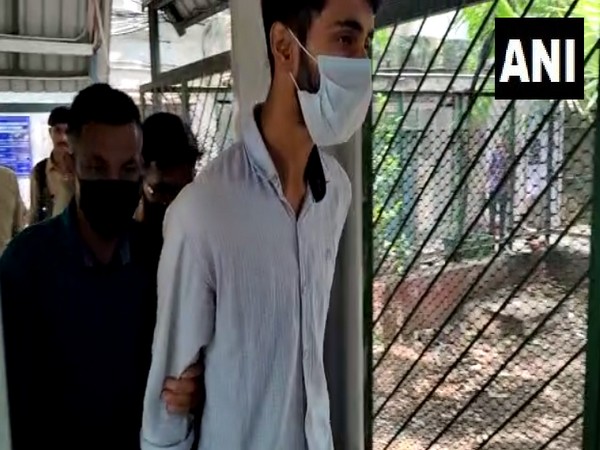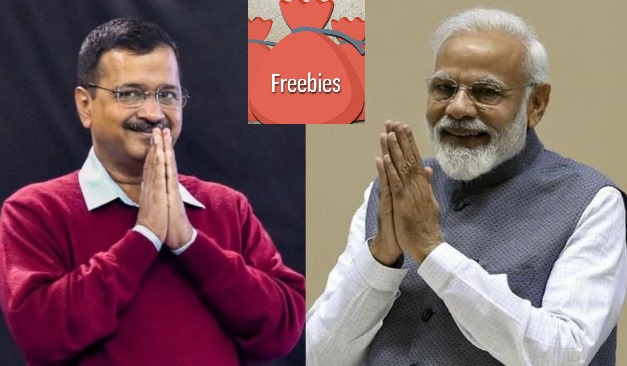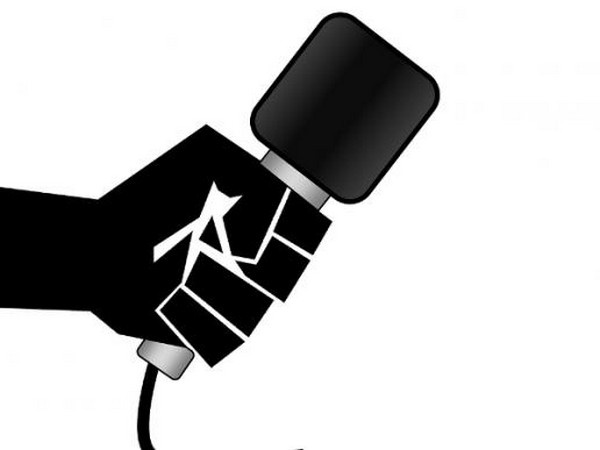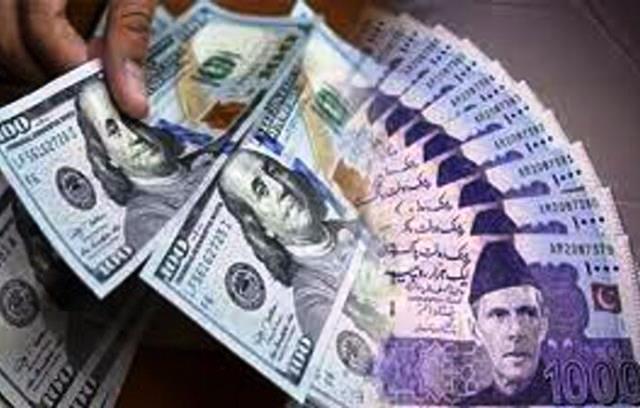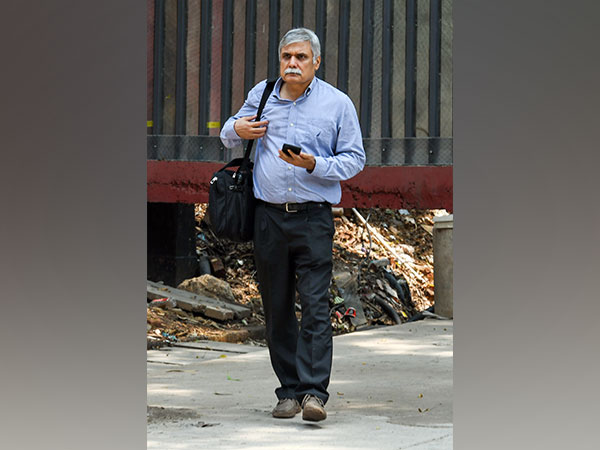The BJP leadership must be regretting, privately of course, that Prime Minister Narendra Modi without any immediate provocation waded into the highly sensitive subsidy issue that requires intense informed debate as to its desirability, form and content and not part of what turned out to be a political address targeted at state governments ruled by opposition parties. In mid July inaugurating a 296 km Bundelkhand expressway in Uttar Pradesh from where Modi has been elected twice to the Lok Sabha, the PM said: “The ‘Revadi culture’ (freebie culture) is dangerous for the development of the country. The followers of ‘Revadi culture’ will never build expressways, airports and defence corridors. People, especially, the youth have to be cautious of such designs as this culture lures the youngsters by freebies and pushes their future to darkness. Together we have to remove this freebie culture from the country’s politics.” In north India revadis stand for sweets.
The importance of subsidy – the debate is now around good and bad freebies – and the absence of informed debate on the subject are underpinned by a Supreme Court bench headed by Chief Justice NV Ramana recommending the setting up of an expert body to find a solution to freebies problem. Interestingly when senior advocate Kapil Sibal said “Parliament will have to debate” the subject, Justice Ramana interjected: “Which political party will agree? Do you think there will be a debate in Parliament? These days everyone wants freebies… no political party will take out freebies, as all want freebies.”
Unfortunately, some have started airing views that the country’s highest court could have done without recommending review of subsidies, which “lies squarely in the province of politics, not the judiciary and technocrats.” Multiple waves of Covid-19 virus wreaking havoc since 2020 has, however, seen developed countries including the US, emerging economies including India and China and others have been supporting individuals and economic activities spending billions of dollar. Now as inflation is raging across the world raising the cost of living, governments and companies are lending support to people in a variety of ways, which are nothing but subsidies.
Let’s look at the UK where inflation is at its highest since 1982. The Bank of England recently gave the warning that the country will slip into recession in the third quarter of this year and will keep shrinking until the end of 2023. High inflation and growth setback have been mainly due to soaring energy costs caused by Russian invasion of Ukraine. In this situation, all businesses will be worried about near term future prospects. Even then British blue chip Rolls Royce, which among other things make aircraft engine for Boeing and Airbus, has given its 14,000 employees cash lump sum of pound sterling 2,000 ($2,450) – a bonus not linked to performance – providing relief for higher living expenses.
Similarly, Lloyds Banking Group and Oxford University have paid pound sterling 1,000 to their employees as one time-relief. Politicians and others participating in freebies debate here will do well to read Rolls Royce chief executive telling the staff a simple wage increase is neither a responsible act nor is that affordable as that would add “too much cost into the long-term wage bill at times of high uncertainty.” The challenge here for the management is to assess how much the company could spare as relief for employees without compromising its own viability.
More importantly, the world’s most powerful economy the US launched an over ‘$1 trillion in American rescue plan programs and tax credits,’ including nearly $10 billion homeowner assistance fund to provide relief to the country’s most vulnerable homeowners and a $350 Corona virus state and local fiscal recovery fund that was also designed to bring back jobs. The UK government too has spent a few hundred billion pound to “support jobs, support incomes and support businesses.”
The fifth largest economy in the world, the UK is a developed economy with $47,334 GDP per capita in 2021. Even then it continues to make very substantial budgetary allocation for health (National Health Scheme) and education, primarily through state schools. All this is done to keep the population in good health and for universal enlightenment. If that be the case with the UK, why shouldn’t India be a lot more generous in providing funds for the two sectors?
At home we have seen how compassionately the automobile to steel to IT group Tata responded by paying temporary workers and daily wage earners even if they were not able to work due to lockdowns, site closures, plant shutdowns or any other reasons during the pandemic. At the same time, it ensured payments to micro, small and medium enterprises were promptly made to spare them liquidity stress.
Soon after the breakout of health crisis in July 2020, an anguished Ratan Tata, chairman of Tata Trusts, seeing the loss of jobs, when survival became a challenge said: “The initial tendency was to lay off people, but is that going to solve your problem? That’s a knee-jerk reaction of the traditional workplace.” Tata will not deny that the management will have to remain responsible to shareholders. But business leaders can’t stand there and crack the whip on people who deliver the goods. You need to understand their position.” What Rolls Royce in the UK or Tata Group in India has done is to approach the issue of supporting their own people in times of extreme stress going beyond their normal obligations as employers without compromising business viability. Shareholders must have the heart to be accommodative of the needs of an important stakeholder – employees, permanent and casual – in extraordinarily difficult times.
Like good freebies and bad freebies, we have in India good corporates and bad corporates. Therefore, the central government requires of companies to spend at least 2 per cent of net profits on corporate social responsibility programmes. Every good work for social and economic development done by corporates and individuals matters. But making available basic services to the poor which they cannot otherwise afford is the responsibility of the government. It is universally proved that societies which make enough allocation for universal quality education, public health and corruption free safety nets to the victims of natural disasters emerge stronger over time.
Works of Amartya Sen, Jean Dreze and Abhijit Vinayak Banerjee also confirm the proposition that a good network of education and health care for the poor is a sure way of empowering those at the lowest rungs of society in terms of income. China has reaped considerable benefits by walking that road and in recent years India’s eastern neighbour Bangladesh has started benefiting by its growing investment in education and health. All this is good economics for emerging and developing nations.
Perhaps not anticipating hostile reactions of chief ministers of opposition ruled states, Modi went ahead in stirring a hornet’s nest by decrying various kinds of subsidies in vogue at the state level. Modi will not be blamed if he started believing in his invincibility after registering thumping victories in two successive Lok Sabha elections in 2014 and 2019. But in several state elections starting from Odisha, West Bengal (Modi and home minister Amit Shah spent any amount of time ahead of March-April 2021 elections and were sure of defeating Trinamool Congress, which, however, retained power with greater majority than last time), Jharkhand, Delhi and Punjab, whatever was thought of Modi magic didn’t work, leaving the prime minister and BJP frustrated. One may not be wrong in believing that more out of discontent than based on serious discourse on merits and demerits of subsidies, Modi made the revadis speech.
Expectedly, Arvind Kejriwal buoyed by Aam Aadmi party’s very impressive victory in February Punjab state elections with BJP managing to win only two seats in the 117-seat Assembly and now eyeing to make a mark in Gujarat where Assembly elections will be held in December is the first among chief ministers to be off the blocks to take the central government over the coals. Kejriwal has been quite liberal in giving subsidies by granting people certain amount of free electricity and water and free education and medical care in Delhi and Punjab and making promises of the same in greater degrees to voters in the western coastal state. Kejriwal said: “The way free services given to the public are being opposed is rather baffling. It is being said that if this is not stopped, governments across the country will go bankrupt. They (BJP leaders) are saying it will lead to a crisis and all such services should be immediately stopped. This also creates doubts about the economic wellbeing of the central government. Such huge opposition makes me wonder if it is in bad condition.”
Kejriwal barbs forced finance minister Nirmala Sitharaman to say: “The Delhi CM has given a perverse twist to the debate on freebies. Health and education have never been called freebies. By classifying education and health as freebies, Kejriwal is trying to bring in a sense of concern and fear in the minds of poor.”
Besides Kejriwal, Odisha chief minister Naveen Patnaik, a rare breed of suave and clean politician has come out stoutly defending subsidies in his state. He said: “I have been eternally focussing on agriculture, education, health, food security, tribal welfare and women empowerment… All our programmes have become very popular and have empowered the people.” Tamil Nadu chief minister MK Stalin too has joined the debate defending the subsidies he has introduced since coming to power. Let people who could pay for services – power or water – are not given freebies. Also the centre and states must ensure that freebies reach the targeted population and not hijacked midway by corrupt politicians at district and panchayat levels.

